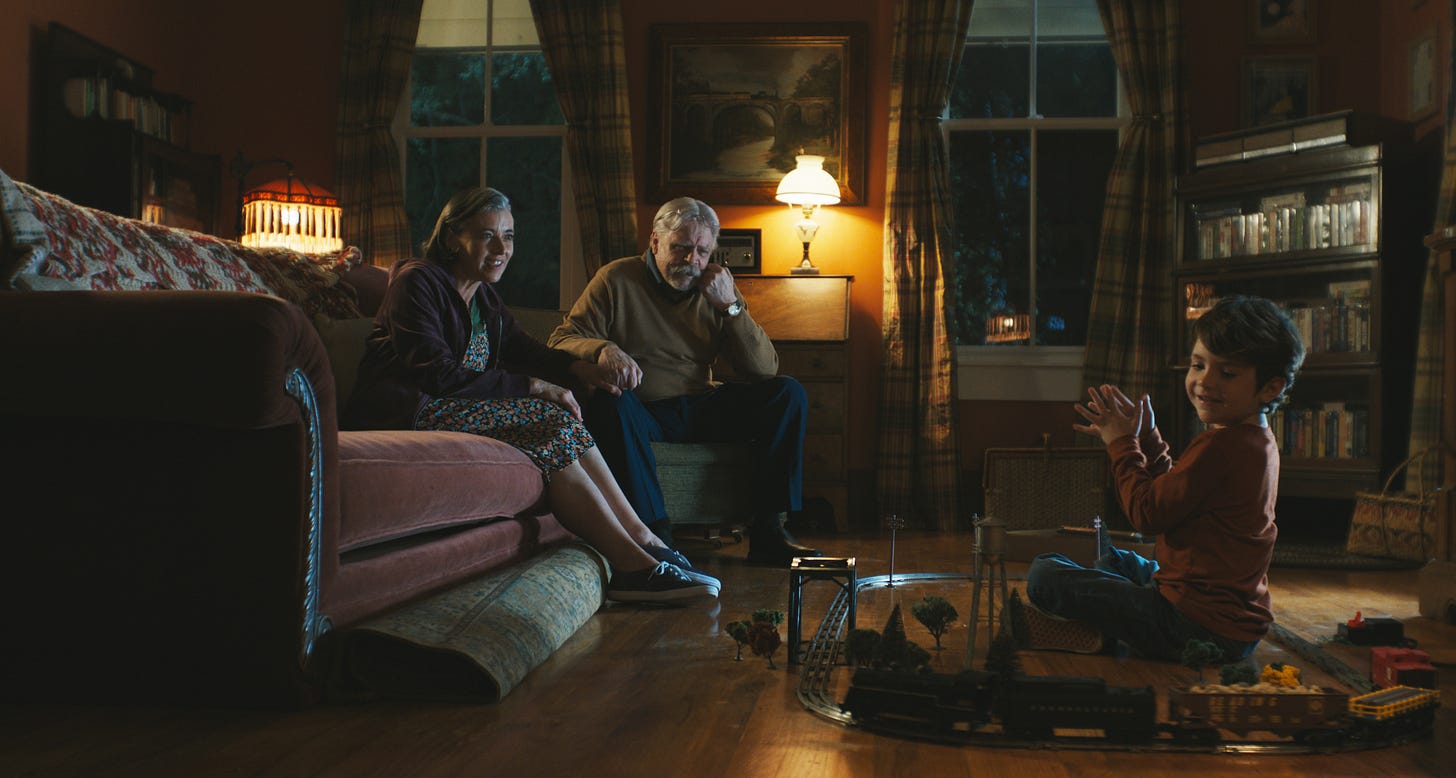‘The Life of Chuck’ is a triumphant Stephen King adaptation
Last year’s TIFF audience award winner is an outstanding movie about life, death, dance, and the end of the world.
"Why did he stop to listen?" "Why did he start to dance?”
There are quite a few reasons that I wasn’t sure I was going to enjoy The Life of Chuck, the new Stephen King adaptation from director Mike Flanagan that lands in theaters this week, after it won the audience award at last fall’s Toronto International Film Festival.
I haven’t been all that enamored with Flanagan’s past films, and the history of screen adaptations of King’s work is checkered, to say the least. I absolutely despise Doctor Sleep, another Flanagan-directed King adaptation, while I saw multiple commercials and trailers for The Life of Chuck, and none of them gave me much indication of what the film is about.
I’m not generally one to be moved by an out-of-nowhere dance sequence, while everything I could gather about the film was that it combined inspirational pap with a message about how we all need to learn to connect, in this cruel world.
Consider me surprised, then, because I ended up loving The Life of Chuck. And the key is in the structure.
Adapted from a non-horror King story that was published in 2020, as part of the “If It Bleeds” collection, The Life of Chuck is told in three acts, in reverse chronological order.
The first, resembling the second half of Lars von Trier’s Melancholia, deals with the impending end of the world, told mostly through the eyes of a teacher (Chiwetel Ejiofor) who’s trying to keep things going even as the Internet stops working and California sinks into the sea. Through the flickering TV, he sees references to a mysterious man named “Chuck,” who it’s implying is retiring from some job or public role.
The second act shows us Chuck (Tom Hiddleston), as an insurance agent on a business trip to Alabama, where he has an impromptu dance number with a young woman (Annalise Basso.) And then, the third act is about Chuck’s childhood, where he’s played by Jacob Tremblay and raised by his grandparents after the sudden death of his parents.
The grandparents are a casting coup: Mark Hamill… and Mia Sara, who played Sloane in Ferris Bueller’s Day Off and returns after an acting hiatus of many years.
There’s some push and pull over whether Chuck should pursue his true passion of dance or do something more sturdy. There’s also a mystery-box plot involving a secret room in the grandparents’ house.
Mark Hamill might not be the most intuitive choice to play a Jewish grandfather, but it works. Speaking of counterintuitive, Nick Offerman is the narrator, an offbeat choice that absolutely works. And Q'orianka Kilcher, from Terrence Malick’s The New World, shows up as Chuck’s wife.
The Life of Chuck succeeds because it takes advantage of the reverse chronology to set things up that pay off down the line. I like that it starts with a massive story (the end of the world) and then flashes back to a smaller, more human one. I’m going to interpret the story of Chuck’s life as a metaphor for the world itself, but others may have other interpretations.
It’s also much less maudlin than it could have been, and also not nearly as smug as some other recent movies about the end of the world, like Don’t Look Up. There are unmistakable echoes of Tim Burton’s great Big Fish, between the Alabama setting and the way it’s a summation of one’s life.






In "The Life of Chuck" does the first act actually deal with the end of the world, or the end of Chuck with the end of the world being a metaphor for what's going on inside Chuck's increasingly cancer-ridden brain. Why else have the arbitrary signs thanking Chuck for 39 years (which are actually said by his wife, as he lies dying)?
Chuck's life is the thread connecting everything together. The characters continue to reappear in Acts 2 and 3. In other words, they "contain [Chuck's] multitudes"
It was an extraordinarily powerful film.